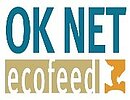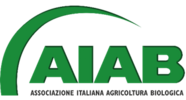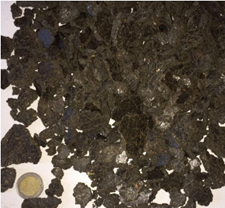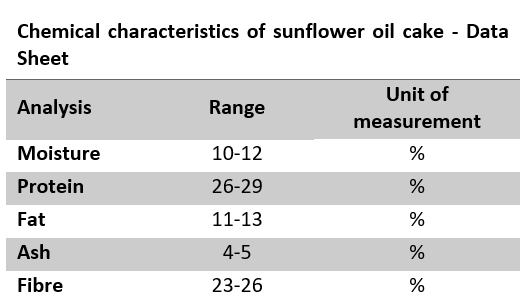Sunflower oil cake
Problem
Sunflower oil cake is a high protein and fat feed source for livestock. It is a by-product obtained from the extraction of oil from sunflower seeds. It can be obtained by mechanical pressing resulting in a „cake“ (see Figure 1) containing 15-20 % oil or by solvent, which increases the quantity of oil. In organic farming, oil may only be extracted by mechanical pressing.
The quality of the oil depends on plant characteristics and on the processing.
Solution
The quality of the product can be increased by first dehulling the seeds. This improves the pressing capacity as well as the oil and meal quality. Mechanical extraction is used by producers of speciality oils and smallholder farmers in both developed and developing countries.
Benefits
An advantage over soybean is that is generally not genetically modified so it is easier to include in organic feeding. Sunflowers can be included in the crop rotation (Pantipa Na Chiangmai et al., 2014).
Applicability box
Geographical coverage
Global, dry climate
Application time
After harvesting
Required time
It depends on the press machine.
Period of impact
Sequential cropping
Equipment
Oil press
Best in
Practical Recommendations
Oil presses are used for the mechanical extraction of oil from oilseed crops. The procedure to obtain oil cake is as follows:
- The seeds are delivered to the press where they are crushed and squeezed.
- Under pressure, the oil leaks through the press holes and gathers into the oil repository underneath the press.
- The oil is filtered to remove any solids, which are then cleaned of unwanted substances.
- Together with the oil, an oil-rich press cake is produced.
- After the oil cake has been removed from the press, it is cooled down. It can be stored for up to 3 months.
- This procedure is a current processing technique that produces a good quality oil cake (see Table 1).
In terms of feeding, sunflower oil cake plays an important role in monogastric diets due to its high methionine content, similar to soy cake. It has a high fiber content; the well-structured raw fibre has a positive dietary effect on pigs. Its use in the finishing phase has to be limited because of the relatively high proportion of polyunsaturated fatty acids (PUFA), which can lead to an undesirable soft fat consistency in the carcass if the dosage is too high.
Further information
Video- The video “Oil press SP-1000 2015” at shows the process of oil extraction and cake production.
Reading
- Heuzé V., Tran G., Hassoun P., Lessire M., Lebas F. (2019): Sunflower meal. Feedipedia, a programme by INRA, CIRAD, AFZ and FAO. Available at https://www.feedipedia.org/node/732. Last updated on September 25, 2019, 14:17
- Kartika, I. A. (2005): Nouveau procédé de fractionnement des graines de tournesol: expression et extraction en extrudeur bi-vis, purification par ultrafiltration de l’huile de tournesol. Thèse de doctorat. Institut national polytechnique de Toulouse, spécialité: Sciences des Agroressources.
- Pantipa Na Chiangmai et al. (2014): Sunflower: A potential crop for rotating with rice in small farm setting. Available at https://www.researchgate.net/publication/264234313_Sunflower_A_potential_crop_for_rotating_with_rice_in_small_farm_setting
- Website of the oil press supplier Bronto with a selection of presses.
About this practice abstract and OK-Net EcoFeed
Publishers:Associazione Italiana per l’Agricoltura Biologica (AIAB),
IT00159Rome,
Phone +39 064386450,
info@aiab.it,
www.aiab.itResearch Institute of Organic Agriculture (FiBL),
CH5070Frick,
Phone +41 62 865 72 72,
info.suisse@fibl.org,
www.fibl.orgIFOAM Organics Europe,
BE1000Brussels,
Phone +32 2 280 12 23,
www.organicseurope.bio,
www.organicseurope.bio
Review: Lindsay Whistance, ORC, UK
Contact: lavinia.proietti@gmail.com
Permalink: https://organic-farmknowledge.org/tool/37801
https://orgprints.org/view/projects/OKNetEcoFeed.html
This practice abstract was elaborated in the Organic Knowledge Network on Monogastric Animal Feed project. The project is running from January 2018 to December 2020. The overall aim of OKNet EcoFeed is to help farmers, breeders and the organic feed processing industry in achieving the goal of 100% use of organic and regional feed for monogastrics.
Project website: https://ok-net-ecofeed.eu/
IFOAM Organics Europe (project coordinator), BE; Aarhus University (ICROFS), DK; Organic Research Centre (ORC), UK; Institut Technique de l'Agriculture Biologique (ITAB), FR; Research Institute of Organic Agriculture (FiBL), CH; Bioland, DE; Associazione Italiana perl'Agricoltura Biologica (AIAB), IT; Donau Soja DS, AT; Swedish University of Agricultural Sciences, SE; ECOVALIA, ES; Soil Association, UK.



This project has received funding from the European Union’s Horizon 2020 research and innovation programme under grant agreement No 773911. This communication only reflects the author’s view. The Research Executive Agency is not responsible for any use that may be made of the information provided. The authors and editors do not assume responsibility or liability for any possible factual inaccuracies or damage resulting from the application of the recommendations in this practice abstract

